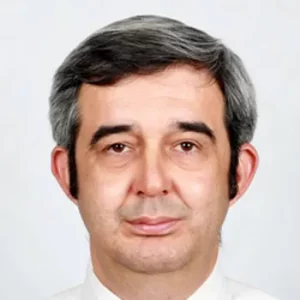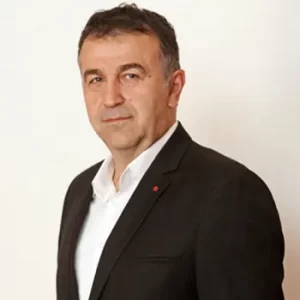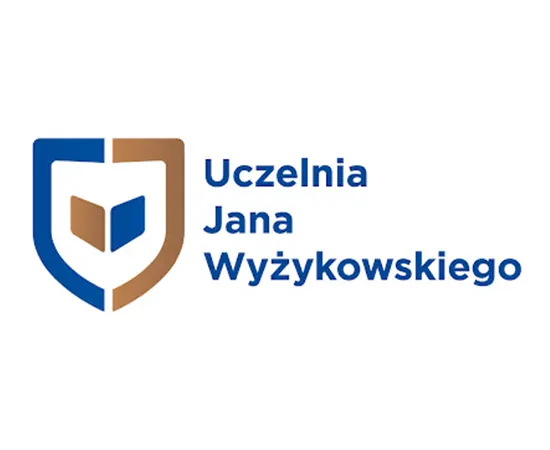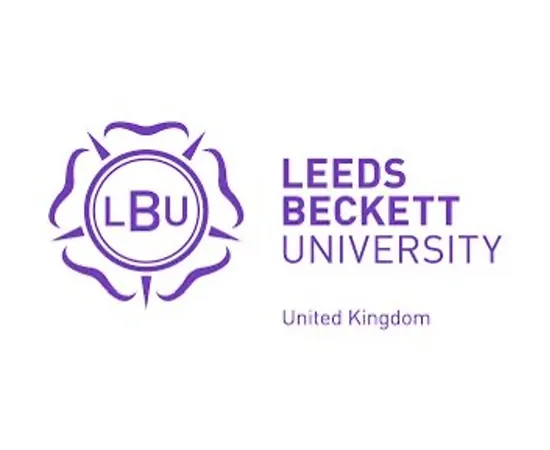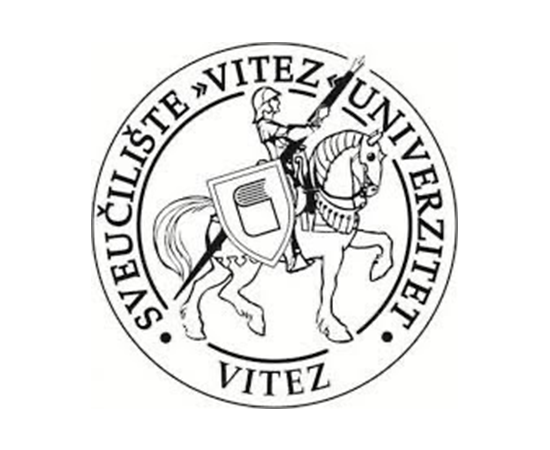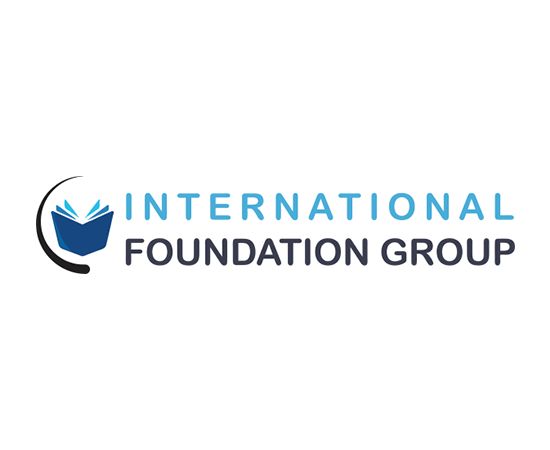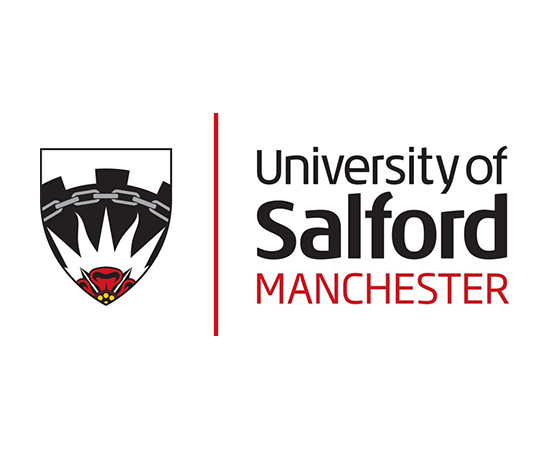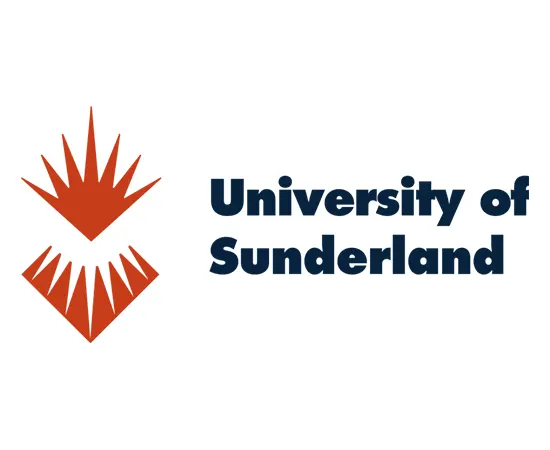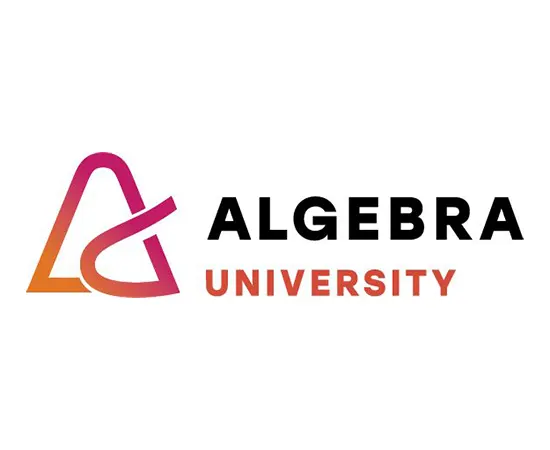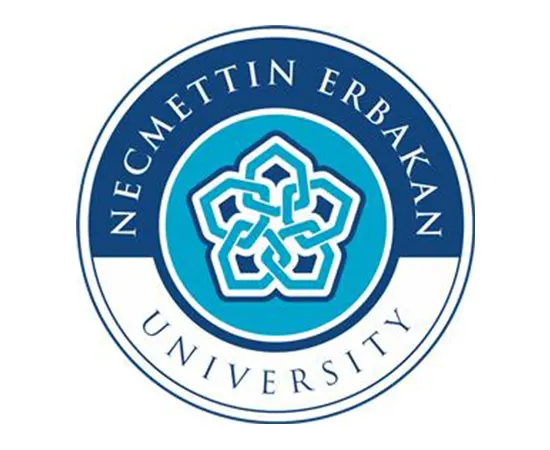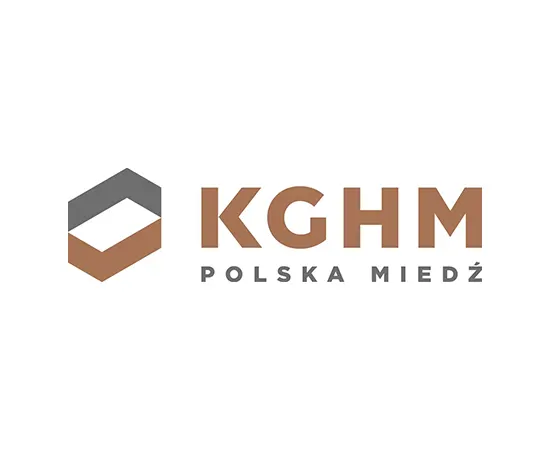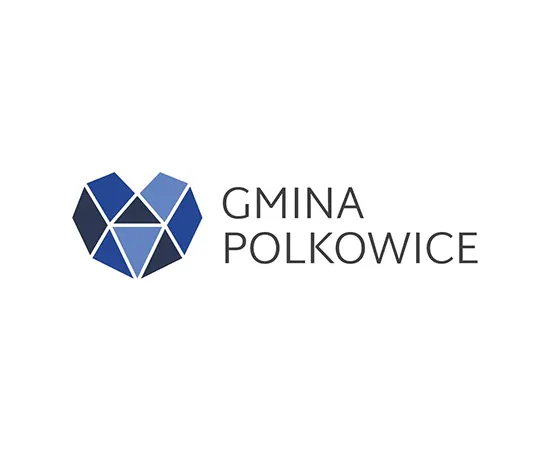22nd Annual Conference
NextGen Business: Sustainability & Digitalisation
CIRCLE International is delighted to announce a call for papers for the upcoming 22nd CIRCLE International Conference 2026: NextGen Business: Sustainability & Digitalisation. This conference aims to bring together academics, scholars, educators, and professionals from diverse disciplines to exchange ideas, share best practices, and explore collaborative research opportunities.
The conference will serve as a platform for interdisciplinary collaboration and knowledge sharing, spanning a wide array of fields. It also offers a valuable opportunity for PhD & Master’s students and early-career researchers to present their work and engage with an international academic audience.
Join us in person to experience the conference closely!
In order to better support our worldwide audience, the 22nd CIRCLE International Conference will provide both in-person and online participation options. While we are pleased to offer virtual access (particularly for delegates from countries with visa or travel restrictions) we actively encourage in-person attendance. Being there in person provides exceptional networking possibilities, important discussions, and a more comprehensive and engaging conference experience.
For those unable to attend, the online platform allows you to present your work and interact with colleagues from all around the world.
Important Deadline
The conference is now accepting papers and abstracts
Conference topics
The conference will address a variety of issues, including Finance & Economics, Climate Change & Sustainability, Human Resources (HR), Tourism & Marketing, Social Sciences & Education, Management & Innovation, AI & Digital Transformation and Mining, Copper Metallurgy, Geospatial Technologies & Industrial Sustainability.
The Scientific Committee invites submissions that align with the eight core themes outlined below. Each of the eight categories reflects a key area of focus for the 2026 Circle International Conference. To view the full scope of topics under each category, please expand the dropdown menus below.
- Corporate finance and investment analysis
- International economics and trade
- Financial risk management and derivatives
- Banking systems and digital finance
- Macroeconomic policy and fiscal sustainability
- Fintech and financial innovation
- Economic growth and development studies
- Consumer finance and behavioral perspectives
- Technology transfer and commercialization partnerships
- Climate adaptation and mitigation strategies
- Environmental economics and policy
- Sustainable business and circular economy
- Renewable energy markets and green finance
- Climate risk assessment and management
- ESG reporting and corporate responsibility
- Sustainability in urban planning and infrastructure
- Strategic workforce planning
- Diversity, equity, and inclusion in HR
- Employee engagement and motivation
- HR analytics and decision-making
- Talent acquisition and retention strategies
- Remote work, wellbeing, and hybrid work cultures
- Learning, development, and leadership training
- Sustainable and eco-tourism development
- Destination branding and digital storytelling
- Consumer behaviour and travel trends
- Digital marketing, influencers, and AI tools
- Crisis communication in tourism and hospitality
- Heritage tourism and cultural authenticity
- Experience design and customer engagement
- Marketing communications and its impact on consumers
- Innovative practices in consumer research
- Impacts of festivals and pilgrimage tourism
- Event-marketing strategies for local authorities
- Educational leadership and curriculum reform
- Digital pedagogy and virtual learning
- Inequality, equity, and access in education
- Sociology of work, identity, and culture
- Political science, governance, and public policy
- Mental health, social care, and community resilience
- Anthropology and intercultural communication
- Cross-border education policy and student mobility
- International university networks and partnerships
- Organisational strategy and transformation
- Leadership and change management
- Innovation in business models and value creation
- Agile and lean project management
- Corporate governance and ethical decision-making
- Startups, entrepreneurship, and scaling innovation
- Knowledge management and organisational learning
- Machine learning and intelligent systems
- AI in business, education, and healthcare
- Data analytics and decision support
- Blockchain, cybersecurity, and digital trust
- Human–AI collaboration and ethical dilemmas
- Robotics, automation, and the future of work
- Smart systems and Industry 4.0 technologies
- AI for sustainable development
- Geospatial intelligence in mine design and resource optimization
- Subsurface infrastructure monitoring and spatial risk analysis
- Multisensor data fusion in underground environments
- Spatial digital archives for industrial heritage and cultural memory
- Deep tech innovation in mine-to-mill and smelting workflows
- Geospatial support for sustainable copper metallurgy
- Waste storage technologies
We welcome submissions from scholars, researchers, practitioners, graduate students, and doctorate candidates.
Publishing Opportunities
Accepted papers and abstracts will be published in the Book of Proceedings and assigned an ISBN.
The best conference papers will be evaluated for publication in select publications, including:
- Circle International Journals, (IJMC) & (IJSRM)
- Inderscience Journals, and
- Other journals indexed in Copernicus and EBSCO databases.
- Journal of Enterprise Information Management (SCOPUS)
Organisation Committee
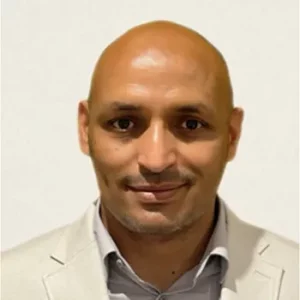
Prof. Mohamed El-Ansari
Circle International, UKProf. Mohamed El-Ansari is an acknowledged academic and the President of Circle International, where he oversees a number of initiatives aimed at developing global higher education, creating academic partnerships, and promoting doctorate education. With a strong dedication to international collaboration and transnational education, he has played a key role in establishing networks that link universities across regions and disciplines.
His research and academic efforts have focused on university social responsibility, transnational education (TNE), and the sustainability of higher education in crisis zones—an area of ongoing interest that positively informs his work in higher education policy and education diplomacy.
In addition to his leadership at Circle International, Prof. El-Ansari is an Honorary Research Fellow at University College London (UCL) and an honorary professorand external examiner for various institutions in the United Kingdom as well as internationally. He is regarded for his contributions to international students & early-career academics and the formation of strategic academic collaborations throughout global academia.
His experience includes hosting high-level educational events and working with both government education agencies and educational institutions. He actively contributes to the establishment of scholarship programmes and capacity-building activities, notably in the MENA region and Africa, in partnership with the institutions in the UK and Europe.
Prof. El-Ansari is passionately dedicated to advancing innovation, academic governance, and higher education excellence. His continuous research and global partnerships continue to make a significant contribution to the international academic community.
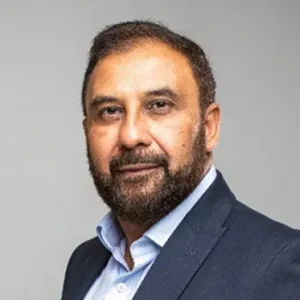
Prof. Tahir Rashid
University of Salford, UKProf. Tahir Rashid is the Associate Dean International at Salford Business School, University of Salford, UK, where he provides strategic leadership in international partnerships, global student recruitment, and the advancement of Global Citizenship initiatives. From May 2022 to August 2023, he also served as Associate Pro-Vice Chancellor (International Partnerships), playing a pivotal role in delivering the University’s internationalisation strategy across Bahrain, Malaysia, Pakistan, Vietnam, and Switzerland.
Prof. Rashid has an extensive publication record, including peer-reviewed journal articles, book chapters, and international conference presentations in the fields of digital marketing, international higher education, and the creative industries. He is also the co-author of the widely adopted textbook Digital and Social Media Marketing, published by Routledge.
With over 25 years of experience in international higher education, Prof. Rashid has taught, researched, and collaborated with globally respected institutions including University College London, KEDGE Business School, the University of Sheffield International Faculty, and Salford Business School. He currently serves on the board of CIRCLE International and is an active member of the Greater Manchester Combined Authority (GMCA) international education forums, including the GMCA-Pakistan and GMCA-Bangladesh forums, as well as the Manchester India Partnership
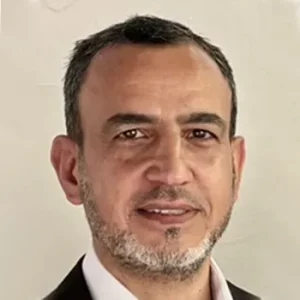
Prof. Razaq Raj
Leeds Business School, UKProf. Razaq Raj stands as a globally recognised academic figure, boasting a wealth of experience in teaching, research, leadership, and management across a diverse array of countries, including the United Kingdom, Malta, Portugal, Spain, Italy, Germany, China, Japan, and South Korea. He currently holds the title prestigious position of Visiting Prof. at France’s Kedge Business School, as well as the esteemed title of Honorary Prof. at the University of Vitez in Bosnia. His impressive career spans several domains, including external examining and curriculum development for both undergraduate and postgraduate programs in business management, events, and tourism. Moreover, Prof. Raj has lent his expertise as a Quality Assurance Agency (QAA) Reviewer, responsible for monitoring and enhancing educational standards and quality within UK higher education.

Prof. Okeoma John-Paul Okeke
The University of Sunderland, UKProf. John-Paul Okeke is a Senior Lecturer in Management (Strategy and Operations) at the Faculty of Business, Law and Tourism. He is currently the Centre Leader of MDIS Dushanbe (Tajikistan) and leads the Research Methods Module at the University of Sunderland. He has a broad range of experiences in UK higher education, British Transnational Education Partnerships (TNE) and industry practice within and beyond the UK. His previous roles in academic management include Programme Manager of the Global MBA at De Montfort University Kazakhstan (DMUK), Programme Manager for the Doctorate in Business Management (DBA), and BA Business Management at the University of Wales Trinity Saint David (UWTSD) with successful outcomes.
John-Paul has a BSc in Business Management, MA in Management, and a Chartered Institute of Marketing (CIM) Professional Certificate in Marketing and Digital Marketing. His Doctoral research was on Human Resource Management with a focus on Knowledge Management (KM) which he brings to his management practice. Prof. John-Paul is a qualified teacher having obtained the Award in Learning and Teaching in HE (ALTHE) and the PG Certificate in Higher Education (PGCert HE) both accredited by the Higher Education Academy (HEA). He is currently an External Examiner at the University of Coventry (BA (Hons) Business and Human Resource Management; PgC/PgD/MA Leadership in the Road Sector and MA Management) and the University of Bedfordshire (BSc- Human Resource Management pathways and with Law assessments). These roles ensure that he is up to date with training, conversations on assessments, and reporting on academic standards, quality, and consistency of teaching compared to the QAA quality code. Prof. John-Paul is a Senior Fellow (SFHEA) of the Higher Education Academy and acts as a mentor to new academics using his experiences as an Institute of Leadership and Management (ILM) Endorsed Coach.
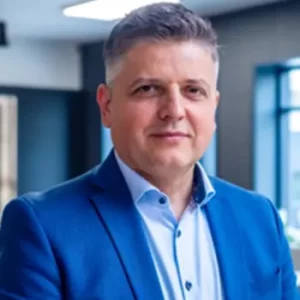
Prof. Nikola Draskovic
Algebra University, CroatiaAssociate Prof. Nikola Draskovic leads the University Department of Economics at Algebra University. He completed his PhD in 2010 at Leeds Metropolitan University, UK, specializing in marketing. Before this, he acquired dual master’s degrees in marketing and management from the University of Zagreb’s Faculty of Economics and Business. From January 2019 to February 2023, he served as the Commercial Director at Colas Hrvatska d.d. and as a director at its Slovenian subsidiary. His academic tenure includes roles as Lecturer and Senior Lecturer at RIT Croatia, spanning four years. Before that, he spent thirteen years as a sales manager and key account manager at Vetropack Straža d.d. His career initiation was in the marketing sector, managing advertising projects for both domestic and international clients, including notable companies like Hrvatski Telekom, Unilever, Johnson & Johnson, and Hyundai. His research focuses on the marketing role of packaging, personal sales, marketing strategy, and digital marketing.
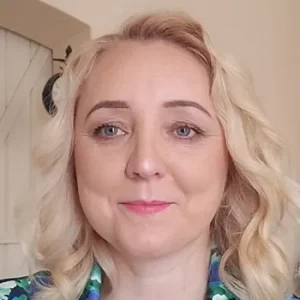
Dr. Beata Szymańska-Waczyńska
Jan Wyzykowski University, PolandBeata Szymańska-Waczyńska PhD is a graduate of doctoral studies at Leeds Beckett University in the UK. She graduated with distinction from the Master of Business Administration studies at the Polish Open University in Warsaw and Oxford Brookes University in the UK.
She has many years of experience as a business advisor, trainer and lecturer. She has cooperated with many educational institutions in Poland and the UK, including: Leeds Beckett University, Wyższa Szkoła Zarządzania / Polish Open University in Legnica, Warsaw and Krakow, Warsaw University of Technology, Jan Wyżykowski University.
She has published her articles in the UK, Ireland and Poland. She is a lecturer at the Jan Wyżykowski University. Beata Szymańska-Waczyńska also conducts business and language trainings for em-ployees of such prestigious companies as Mercedes-Benz Polska, LIS Polska, Toyota Boshoku, Haerter Technika Wytłaczania, KGHM PM S.A., VOSS Automotive Polska Sp. z o.o., and Johnson & Johnson Poland.
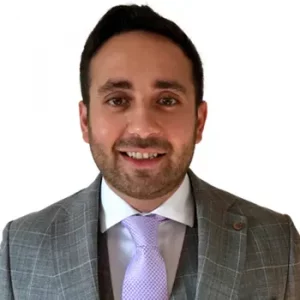
Dr. Siavash Mahvash
Circle International, UKDr Siavash Mahvash is a researcher and higher education professional with experience across academic, regulatory, and applied research settings. He holds a PhD in Civil Engineering and has worked on projects ranging from infrastructure materials development to educational quality assurance and institutional research strategy.
His work spans teaching and curriculum coordination, institutional compliance, and research management, with a focus on using data and evidence to support policy and practice. He has led multi-stakeholder projects in both academic and commercial contexts and has contributed to organisational frameworks for evaluation, performance monitoring, and student outcomes.
Siavash currently works in higher education, where his responsibilities include programme leadership, staff development, and academic governance. His research interests include applied data use in education, evaluation methodology, and interdisciplinary knowledge translation.

Dr. Beata Szymańska-Waczyńska
Jan Wyzykowski University, PolandBeata Szymańska-Waczyńska PhD is a graduate of doctoral studies at Leeds Beckett University in the UK. She graduated with distinction from the Master of Business Administration studies at the Polish Open University in Warsaw and Oxford Brookes University in the UK.
She has many years of experience as a business advisor, trainer and lecturer. She has cooperated with many educational institutions in Poland and the UK, including: Leeds Beckett University, Wyższa Szkoła Zarządzania / Polish Open University in Legnica, Warsaw and Krakow, Warsaw University of Technology, Jan Wyżykowski University.
She has published her articles in the UK, Ireland and Poland. She is a lecturer at the Jan Wyżykowski University. Beata Szymańska-Waczyńska also conducts business and language trainings for em-ployees of such prestigious companies as Mercedes-Benz Polska, LIS Polska, Toyota Boshoku, Haerter Technika Wytłaczania, KGHM PM S.A., VOSS Automotive Polska Sp. z o.o., and Johnson & Johnson Poland.

Dr. Siavash Mahvash
Circle International, UKDr Siavash Mahvash is a researcher and higher education professional with experience across academic, regulatory, and applied research settings. He holds a PhD in Civil Engineering and has worked on projects ranging from infrastructure materials development to educational quality assurance and institutional research strategy.
His work spans teaching and curriculum coordination, institutional compliance, and research management, with a focus on using data and evidence to support policy and practice. He has led multi-stakeholder projects in both academic and commercial contexts and has contributed to organisational frameworks for evaluation, performance monitoring, and student outcomes.
Siavash currently works in higher education, where his responsibilities include programme leadership, staff development, and academic governance. His research interests include applied data use in education, evaluation methodology, and interdisciplinary knowledge translation.
Hosts and Affiliates
The conference is hosted by Jan Wyzykowski University. The conference is affiliated with Several universities including Leeds Beckett University, Vitez University, Salford University, Sunderland University, Algebra University and Necmettin Erbakan University.
Honorary Patrons
Mayor of Polkowice
KGHM PM SA
Sponsors
The International Foundation Group “IFG”
KGHM PM SA
Our Speakers
Professor Doctor Alexandra Kenyon has the honour of working within two European Universities; University of Vitez; Bosnia and Herzegovina and Universidad de Leon, Spain. Professor Doctor Alexandra Kenyon is also the Editor in Chief for the International Journal of Sales, Retailing and Marketing. She is also an author and her 10th edition of the International Marketing Strategy academic textbook was launched in 2025. In addition; Alexandra has also served as the International Course Director for postgraduate and undergraduate International Hospitality degree courses in Nepal and Indonesia. Her most recent project, with National Pubwatch, was to investigate how Local Pubwatch Schemes contribute to safe, secure and sociable night-time economies.
Prof. Alexandra J. KENYON
Keynote speaker
Hans Rüdiger Kaufmann is Full Professor Marketing at the University of Nicosia in Cyprus since 2006 until today. Since 2016, he is affiliated with the University of Applied Management Studies Mannheim as Professor for International Sales Management. He was the Chair of 3 programs: B.A Management & Leadership, B.A. Management & Leadership (Professional Vocational University) and M.A. Business Management/M.A. Business Management & Digital Leadership (international). With extensive experience across five European countries, he has held various roles as a manager, consultant, and academic.
Consumerism, Entrepreneurship and recently Smart City related topics are the core of his well cited research reflected in many book publications (including Handbooks), book contributions, journal publications, editorial engagement, key notes, and international conference publications/organization. In particular, his interests revolve around consumerism related themes such as branding, luxury, identity and new trends, i.e. sustainability, digitalization and AI. Prof. Kaufmann is Editor-in-Chief of the journal Progress in Industrial Ecology and Associate Editor for the World Review of Entrepreneurship, Management, and Sustainable Development.
Rudi has been a founding member and President/Vice President of the following research networks: American Marketing Association (AMA) Global Marketing SIG, EuroMed Research Business Institute, CIRCLE International, Consumer Brand Relationship Institute.
He also contributes to the academic community as Adjunct Professor at the University of Vitez. Recognized for his commitment to research in sustainability and digitalization, he is an ideal speaker for the theme of “NextGen Business: Sustainability & Digitalisation” at the upcoming event in April 8th at Jan Wyżykowski University in Poland.
Pro. Hans Rüdiger Kaufmann, University of Nicosia
Keynote speaker
KGHM Polska Miedź S.A. Tailings Management Plant
Dr. Paweł Stefanek is Chief Development Engineer at KGHM Polska Miedź S.A., Tailings Management Division, with over 20 years of experience in environmental engineering, geotechnics, and hydrotechnical infrastructure. His career is closely tied to the Żelazny Most Tailings Storage Facility (TSF)-the largest of its kind in Europe-where he has led and participated in numerous R&D, implementation, and monitoring projects. Dr. Stefanek specializes in water management, geotechnical monitoring, and the application of advanced measurement and modeling techniques for industrial waste storage. He has coordinated the development and deployment of innovative monitoring systems, including fiber-optic sensors, MEMS devices, and “cross hole” geophysical surveys. He was instrumental in implementing a 3D hydrogeological model and advanced geotechnical monitoring at Żelazny Most, solutions awarded by the Federation of Scientific and Technical Associations for innovation and technical excellence. He has contributed to several international projects focused on TSF safety, including the UNECE Joint Expert Group on Water and Industrial Accidents and the Strategic Environmental Safety Programme for the Danube. He has also worked on methodologies for comprehensive safety assessment of extractive waste facilities in Central and Eastern Europe. Dr. Stefanek is an active member of professional organizations, including the Section of Hydrotechnical Structures KILiW PAS and the Association of Polish Hydrogeologists. His scientific achievements include authorship or co-authorship of several dozen articles on hydrotransport, monitoring, and TSF safety, published in journals such as Archives of Civil Engineering, Journal of Fluids Engineering, and Water. He has presented at international conferences (e.g., Paste 2017, APCOM 2021, MedGU-22) and contributed to monographs on geotechnical and hydrotechnical engineering. Notably, he has developed methods for monitoring and analyzing the stability of TSF dams under dynamic loads and for the safe expansion of mining activities in complex geological settings. Dr. Stefanek’s work has been recognized with multiple awards, including the Vice-Champion of the Copper Belt for innovative monitoring solutions and distinctions in the Laurel of Innovation competition for the use of 3DSensor technology and advanced geotechnical sampling methods. He regularly collaborates in interdisciplinary safety teams and advisory boards, providing expertise to improve TSF safety strategies worldwide. Selected implemented projects: (1) Implementation of automatic ground displacement measurement systems at Żelazny Most (fiber optics, MEMS), (2) Development of a 3D hydrogeological model for TSF impact assessment, (3) Cross hole geophysical surveys and “gel-push” sampling for geotechnical parameter determination, (4) International safety assessment projects for TSFs under UNECE and ICPDR frameworks, (5) Strategic Environmental Safety Programme for the Danube (tailings risk assessment toolkit). His unique blend of scientific, technical, and practical experience-spanning monitoring system design, large-scale data analysis, modeling, and international collaboration-makes Dr. Stefanek a key contributor to TSF-GUARD, ensuring the project’s solutions are robust, innovative, and ready for industrial deployment.
Dr. Paweł Stefanek Ph.D. Civil Eng
Keynote speaker
Scientific Committee
- Michael Addison, International Foundation Group, UK
- Rafał Czachor, Jan Wyzykowski University, Poland
- Vitor Ambrosio, ESHTE, Portugal
- Gianpaolo Basile, Universitas Mercatorum, Italy
- Dolores Sanchez Bengoa, University of Vilnius, Lithuania
- Tomasz Bernat, University of Szczecin, Poland
- Enrico Bonetti, University of Campagna, Italy
- Bernd Britzelmaier, Pforzheim University, Germany
- Leo Dana, Montpellier Business School, France
- Michael Fass, University of Gloucestershire, UK
- Antonio Feraco, Fraunhofer IDM@NTU, Singapore
- Mitsunori Hirogaki, Ehime University, Japan
- Claudio Vignali, University of Manchester, UK
- Magdalena Krzyżanowska, Kozminski University, Poland
- George Lodorfos, Leeds Beckett University, UK
- Alberto Mattiacci, University of Rome ‘Sapienza’, Italy
- Hans Ruediger Kaufmann, University of Applied Management Studies, Germany
- Carmen Santos, University of León, Spain
- John Stanton, St Joseph’s University, USA
- Madalena Pereira, Creative University of Lisbon, Portugal
- Edyta Rudawska, University of Szczecin, Poland
- Iga Rudawska, University of Szczecin, Poland
- Tomasz Wiśniewski, University of Szczecin, Poland
- Ana Sofia Duque, Polytechnic Institute of Viseu, Portugal
- Jamila Jaganjac, University Vitez, Bosnia and Herzegovina
- Tanja Gavric, University Vitez, Bosnia and Herzegovina
- Anastasia Konstantopoulou, Edgehill University, UK
- Robin Carey, University of Wolverhampton, UK
- Elena Horska, Slovak University of Agriculture in Nitra, Slovakia
- Valerio Temperini, Polytechnic University of Marche in Ancona, Italy
- Silvio Cardinali, Polytechnic University of Marche in Ancona, Italy
- Dinesh Vallabh, Walter Sisulu University, South Africa
- Fatmah Lallmahamood, Circle International, UK
- Neil Richardson, Leeds Business School, UK
For further information, including registration and conference updates, please visit the conference website or email the conference organising committee at conference@circleinternational.co.uk
Submission Guidelines
Abstract formatInterested authors are requested to submit an abstract of their paper (250-300 words). Click here to submit your abstract.
The Abstract must include the following points
- Title/s, author name/s
- Institution/s, country/ies.
- Abstracts should be between 250-300 words in length.
- The main body should include:
- A brief introduction
- Background/key issues from the literature,
- An overview of the methods and
- Results/findings if any.
- Five keywords.
Deadline for abstract submission: 6th February 2026
Authors of accepted abstracts will be invited to submit their full papers (maximum 5000 words). Download the template for the full paper
A selection of the conference papers will be considered for publication in the following journals:
- International Journal of Management Cases
- International Journal of Sales, Retailing, and Marketing
- Journal of Food Products Marketing
- International Journal of Business and Globalization
To submit the full paper please follows the instructions:
The length of the paper should not exceed 22 pages; the minimum length is 11 pages of standard typescript (A4 size; font Arial; size 12; single line spacing, margins 2.5 cm).
For publication in International Journal of Management Cases and International Journal of Sales, Retailing and Marketing follow the instructions below or visit the below links for the two journals: IJMC Submission Requirement Guidelines & IJSRM Submission Requirement Guidelines
Please supply the text of your article in a Microsoft Word file. All of the text must have the minimum of word processing features.
Give your article a title, and list all of the authors at the top of the page. Include an abstract of no more than 300 words and also a list of keywords.
Attach the document in an email to journals@circleinternational.co.uk
The paper submission deadline: 27thMarch 2025
Papers must be formatted according to the conference guidelines
The text should be in Arial (size 12) using the following features:
- Single-line spacing
- Left-aligned text, unjustified
- A single space between sentences
- A single carriage return between paragraphsNo additional paragraph formatting, e.g. Word headings or style
Headings:
If the pattern of headings is complex, please distinguish them by making main headings bold, the next level normal and the subheadings in italics.
Display features:
- Do not use any automatic features of Word-like blobbed and numbered lists.
- Put theses in via your keyboard with the numbers, blobs and tab spacing.
- Set up tables and figures as simple as possible so that they can be converted for typesetting.
- Only cross-reference tables and figures in the main file; at the very least, put them on separate pages-ideally, send additional Word or Excel files.
The text:
- For the word, be as consistent as you can with spelling, references, and nomenclature.
- Use English ‘connection’, ‘colour’, ‘capitalize’, spellings in preference to US ‘x’, ‘or’, and ‘z’. If there is variable spelling, please use your word processor to check that you have used it consistently.
- Numbers should be words from one to ten and in figures thereafter using commas to separate large ones e.g. 1,000,000.
- Where you use a blobbed list, the entries should be punctuated as sentences – with capital letters and full stops – where they involve a verb, like this one.
- If the list is part of a sentence like the one for paragraph features above no punctuation will be required until the last blob.
- Punctuation should be kept to a minimum and full stops only left for genuine abbreviations like e.g. or ibid. (n.b. there is no extra space) For references please see below.
- Capitalisation of initial letters should also be kept to a minimum. Only dignify titles with capitals where a specific managing director, professor or senior lecturer is mentioned. The initial letters of proper names and titles of books and magazines are capitalized; the titles of articles and the headings in your article will not be. Do not capitalize the internet.
- Only the initial letter of the first word of a heading or the article title should be capitalized – follow the style of this page. No full stops at the end of headings.
- Spell out the contents of the acronym in brackets after it; the International Journal of Management Cases (IJMC). For subsequent references, DSA is fine.
- Use en dashes – like these – without space for parenthesis. Don’t worry if you cannot find these on your machine, they can be put in later. All number series, particularly page references to articles in endnotes, should be separated by an en dash without space: e.g. pp 228 – 412.
- Use single ‘smart’ (i.e. curly) quotes for all quotations and inverted commas, except where there is a quotation inside a quotation, then use double ones.
- Use conventional abbreviations for quantities, without spaces between the number and the measure: so £10m, 35% or 25kg, and no extra full stops are required.
- Show percentages as a figure (35%) rather than spelling it out (percent).
References :
The list of books, articles and sources referred to is placed at the end of the article. It is important that the Harvard referencing system is adopted.
Warning:
- Do not, under any circumstances, send graphics or pictures embedded in Word Files. Most Word graphics are inextricable from text files.
- Please type out your captions separately in Word and send in a hard copy of how you would like the diagram to look.
Registration
Doctoral students, faculty members of Jan Wyzykowski University, the International Foundation Group, and Circle International receive priority in registration. The cost includes attendance at the conference from 8th to 11th April 2026. It also consists of the presenting of a single paper. All additional papers require an additional conference fee. Additional authors attending the conference have to pay the conference fee. If your paper is not approved and you do not wish to attend, your registration fee will be returned. The prices cover entrance to conference sessions, networking, coffee breaks, lunches, and the gala dinner.
In-person:
| Fees | Discount | Registration |
| €288 | 20% off | By 15th November 2025 |
| €324 | 10% off | By 30th November 2025 |
| €360 | Standard fee | After 30th November 2025 |
Online:
| Fees | Entry Type |
| €180 | Standard fee |
| €90 | Without publication |
Accommodation
We understand how important it is to find the right place to stay during the conference. That is why we have prepared a carefully selected list of hotels in Polkowice and nearby towns that offer comfortable rooms, modern conference facilities, and reliable Wi-Fi.
In the center of Polkowice, you will find Aqua Hotel (recepcja@aquahotel.pl) which we recommend and Via Hotel, both highly rated by guests and conveniently located close to the conference venue. These are ideal options for participants who value comfort and proximity to the event.
In the vicinity of Polkowice – within a distance of 10 to 20 kilometers – you will also find other excellent accommodation options, such as Hotel Skarbek in Lubin and Qubus Hotel in Głogów.
Book your accommodation in advance to take advantage of the best offers and fully enjoy your time at the conference in Polkowice.
Transportation
Delegates traveling to Polkowice, Poland, have several convenient transportation options:
- By Air:
Although Polkowice does not have its own airport, the nearest international airports are:- Wrocław Copernicus Airport (WRO) – approx. 100 km away
www.airport.wroclaw.pl/en - Poznań–Ławica Airport (POZ) – approx. 120 km away
www.airport-poznan.com.pl/en
- Wrocław Copernicus Airport (WRO) – approx. 100 km away
From either airport, delegates can continue by car, train (with transfers), or bus.
- By Train:
Polkowice is not directly served by the railway. The nearest train stations are located in:- Lubin (approx. 15 km)
- Głogów (approx. 20 km)
Train schedules and ticket booking are available on the official Polish railway website:
www.rozklad-pkp.pl/en
- By Bus:
Several regional and long-distance bus services connect Polkowice with major Polish cities like Wrocław, Legnica, and Zielona Góra. Useful bus operators and platforms include:- FlixBus – www.flixbus.com
- PKS Polkowice (local routes) – www.pks.polkowice.pl
- e-podróżnik (trip planner and ticket booking) – www.en.e-podroznik.pl
- By Car:
Polkowice is conveniently located near the S3 expressway, providing direct access from the north and south of Poland. The drive from Wrocław takes about 1.5 hours.
Payment
Please make the payment for the conference fee, which includes the costs of bank transfer, to Uczelnia Jana Wyżykowskiego in Poland in order to finalise the registration procedure for the conference. It is crucial to submit the payment only after obtaining notification of abstract acceptance.
Participants are fully responsible for covering the cost of the conference fee.
Payment Information for Conference Participants
We kindly inform all participants that international delegates are required to make payment in euros (EUR) to the following bank account:
SWIFT: WBKPPLPP
PL 35109021090000000114357366
Local participants may make payments in Polish zloty (PLN), based on the current exchange rate published by the National Bank of Poland (NBP) on the day of the transaction to the following bank account:
Santander Bank Polska S.A. o/Polkowice
73 1090 2109 0000 0005 5006 4774
Please ensure that the correct amount is transferred and that any bank fees are covered by the sender.
Please include the phrase “participation in the CIRCLE International Conference” in the bank transfer details and specify the participant’s name and surname. This will enable us to promptly identify and process your payment.
Visa
Before departing, delegates should check visa and travel limitations based on their nationality and destination. Check for travel advisories and recommendations from appropriate agencies to ensure a safe and seamless trip.
If you require a visa to attend the conference in Poland, please follow the steps below:
- Check Visa Requirements
Visit the website of the Polish Embassy or Consulate in your country to determine whether you need a Schengen visa (Type C) for conference attendance and to review specific requirements. - Prepare the Required Documents
Typically, you will need:- A valid passport (must be valid for at least 3 months beyond your planned stay)
- A completed Schengen visa application form (Download from: www.gov.pl or your local Polish embassy site)
- An official invitation letter from the conference organizer
- Hotel booking confirmation
- Flight itinerary
- Travel medical insurance with minimum coverage of €30,000 valid for the entire Schengen area
- Proof of visa fee payment
- Submit Application
Submit the complete application to the nearest Polish Embassy or Consulate, either by scheduling an appointment or via an external visa center (e.g., VFS Global – check your local procedures). - Attend the Visa Interview
If required, attend a visa interview at the Polish diplomatic mission. - Collect Your Visa
After approval, collect your visa in person or as instructed. - Important Deadline
It is strongly recommended to apply for your visa at least 3 months before the conference to ensure timely processing.
Contact Us
For further information, including registration and conference updates, please visit the conference website or email the conference organising committee at conference@circleinternational.co.uk
Circle International
Mayfair Point
34 South Molton Street
London W1K 5RG
United Kingdom
